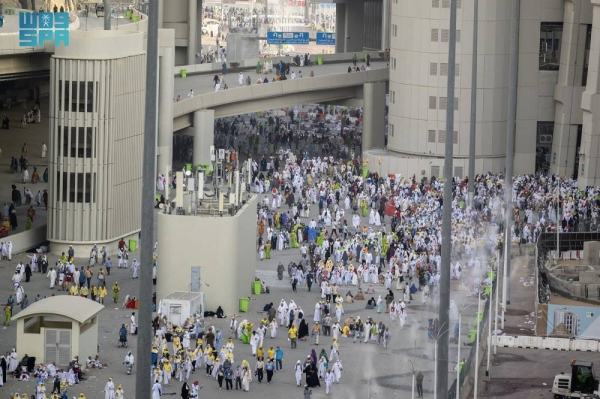Minister of Health Fahd Al-Jalajel has announced the successful completion of the health plans for the Hajj season of 2024, with no outbreaks of diseases or threats to public health reported. He expressed his gratitude to the Saudi leadership for their support in ensuring the well-being of pilgrims. Al-Jalajel highlighted the extensive resources allocated, including hospitals, health centers, and mobile clinics, along with medical staff and volunteers, ambulances, air ambulances, and logistics support to cater to over 390,000 pilgrims. The minister commended the collaborative efforts of various healthcare entities, including the Makkah Health Cluster, the Red Crescent Authority, and the Public Health Authority.
The Supreme Hajj Committee, led by Minister of Interior Prince Abdulaziz bin Saud bin Naif, implemented measures to protect pilgrims from the risks of high temperatures during rituals and address potential health challenges. Al-Jalajel extended his gratitude to Makkah Governor Prince Khaled Al-Faisal, Deputy Emir Prince Saud bin Mishal, and the Municipality of Makkah for their roles in achieving success. He acknowledged the Central Hajj Committee’s recommendation for pilgrims to avoid performing rituals during peak temperatures, which helped safeguard their health and minimize heat stress injuries. The minister commended the Pilgrim Experience Program for fostering cooperation among Hajj stakeholders and providing a positive experience.
The collaborative efforts of healthcare providers from the Ministry of Defense, the National Guard, and the Ministry of Interior, along with other healthcare providers, ensured prompt medical attention to all pilgrims. Al-Jalajel emphasized the importance of educating pilgrims to prevent outbreaks of disease and thanked all participating government agencies for their collaborative approach. He commended the spirit of cooperation and solidarity among healthcare workers, security personnel, and other workers who contributed with dedication and tireless efforts to a successful Hajj season. The minister expressed gratitude for the early preparations made within the framework of the Pilgrim Experience Program, which contributed to the seamless collaboration between all government agencies.
The success of the health plans for the Hajj season of 2024 was attributed to the collaborative efforts of various healthcare entities, government agencies, and stakeholders in the Kingdom’s health sector. Minister of Health Fahd Al-Jalajel expressed satisfaction over the lack of outbreaks or public health threats despite the significant number of pilgrims and the challenges posed by high temperatures. He highlighted the services provided to over 390,000 pilgrims, including open-heart surgeries, cardiac catheterizations, and dialysis sessions. The Seha Virtual Hospital also provided virtual consultations to over 5,800 pilgrims primarily for heat-related illnesses, enabling prompt intervention and mitigating potential surges in cases.
The collective efforts of healthcare providers, security personnel, and other workers involved in serving pilgrims were essential in ensuring a successful Hajj season. Al-Jalajel commended the coordination and collaboration among healthcare providers, which facilitated the delivery of healthcare services to all pilgrims. He also expressed appreciation for the collaborative approach taken by participating government agencies, emphasizing that this cooperation significantly contributed to the success of the Hajj season and prevented epidemics. The minister’s statements highlighted the importance of early preparations, education of pilgrims, and the seamless integration among healthcare providers to ensure the well-being of pilgrims during the Hajj season.











